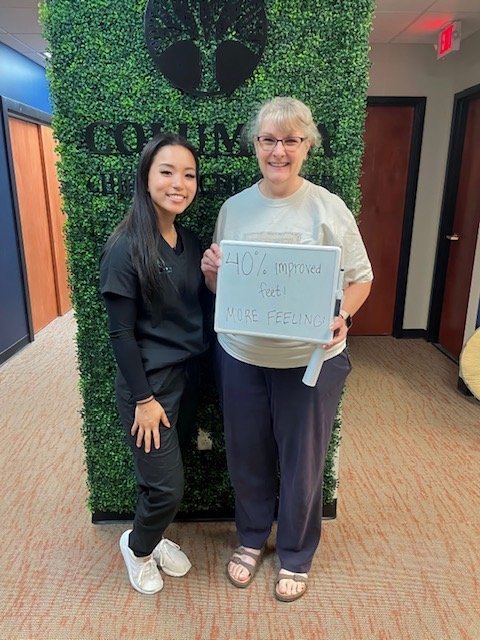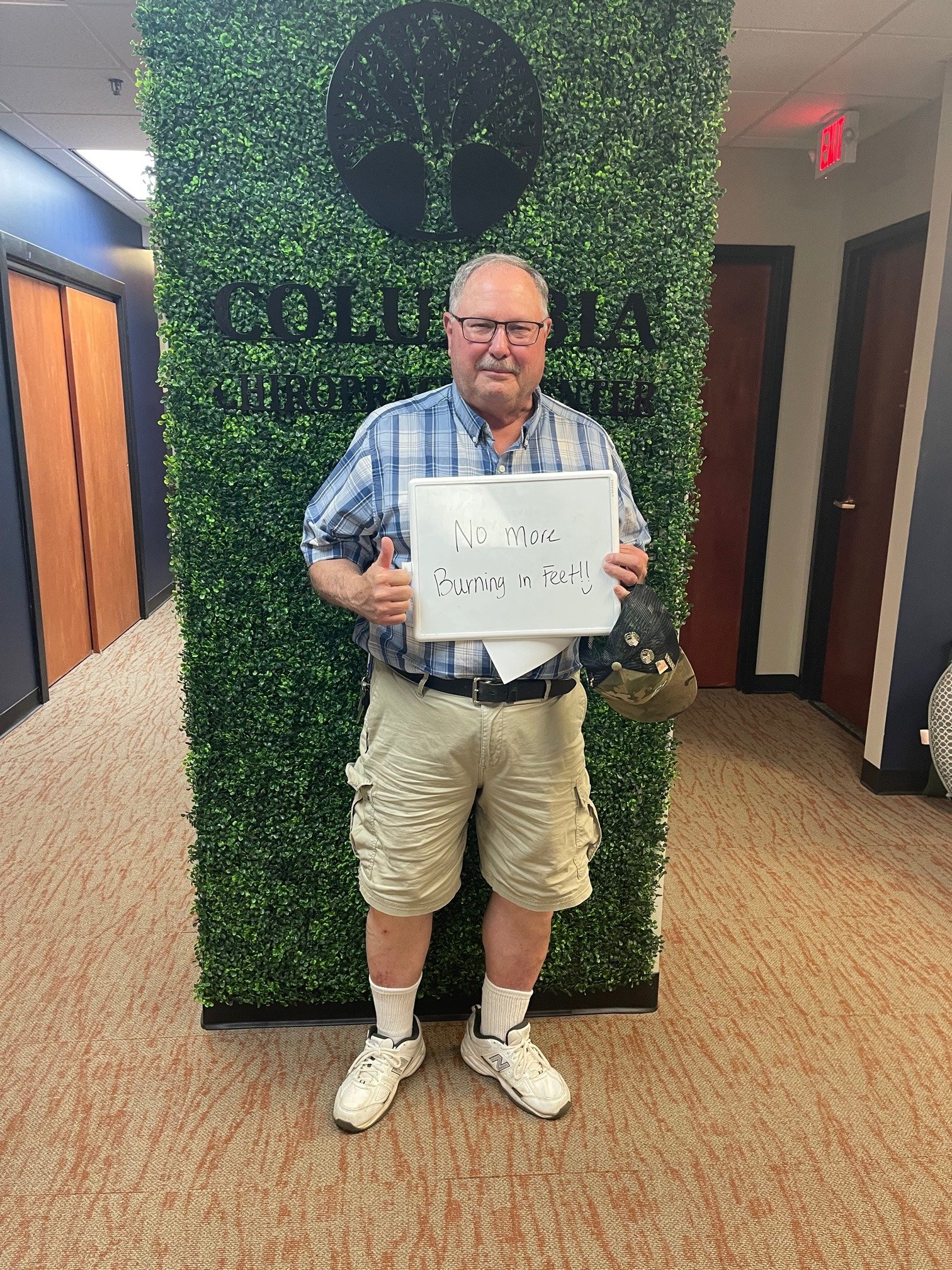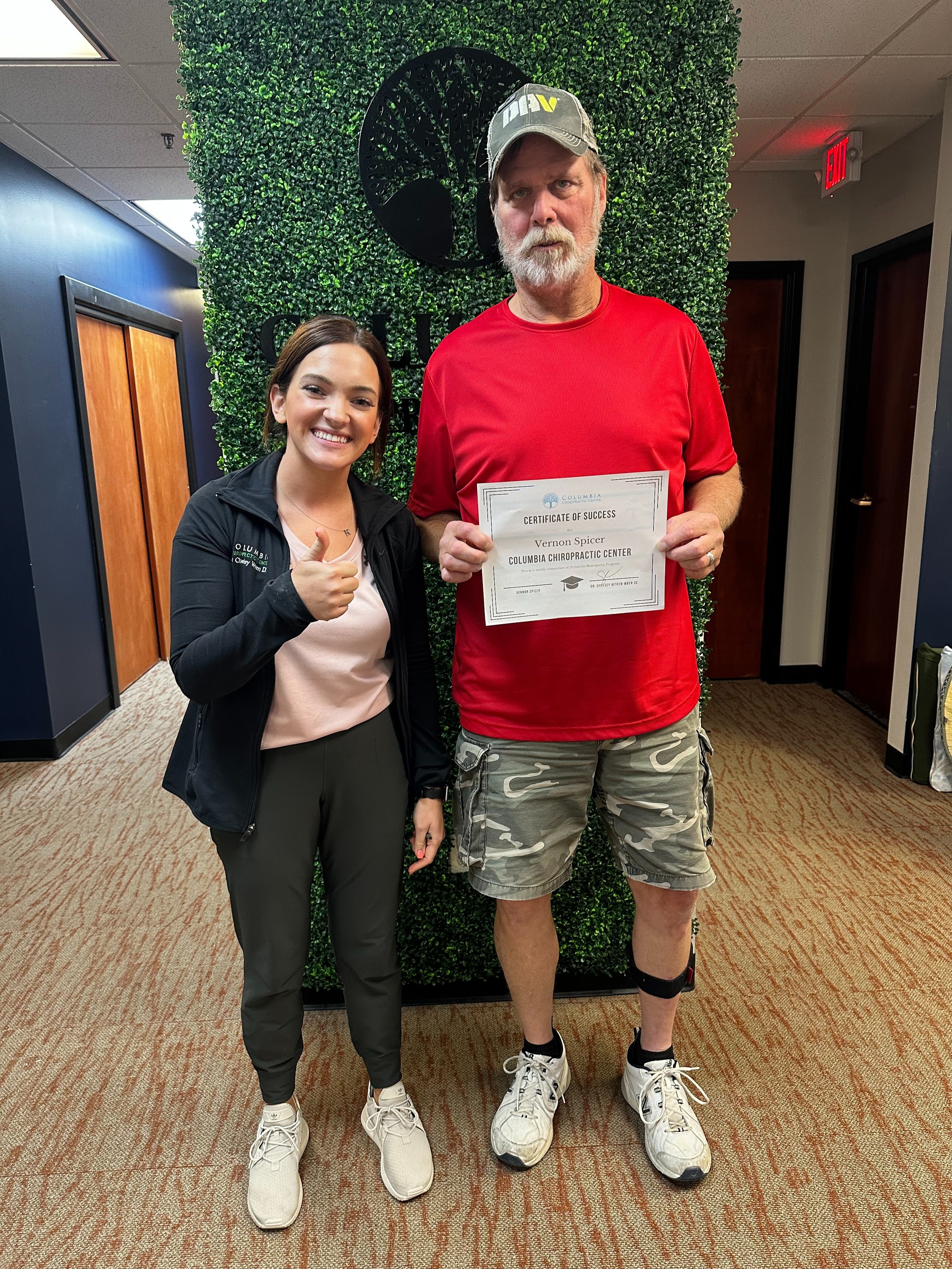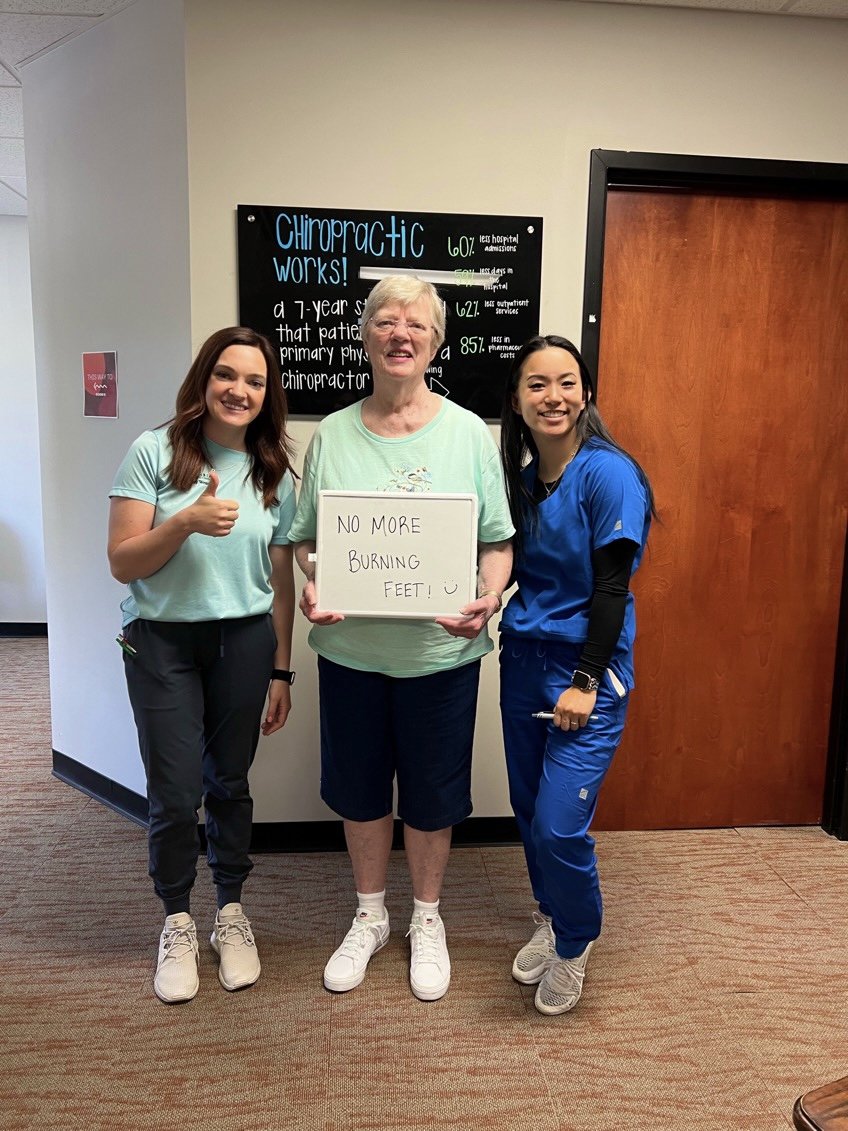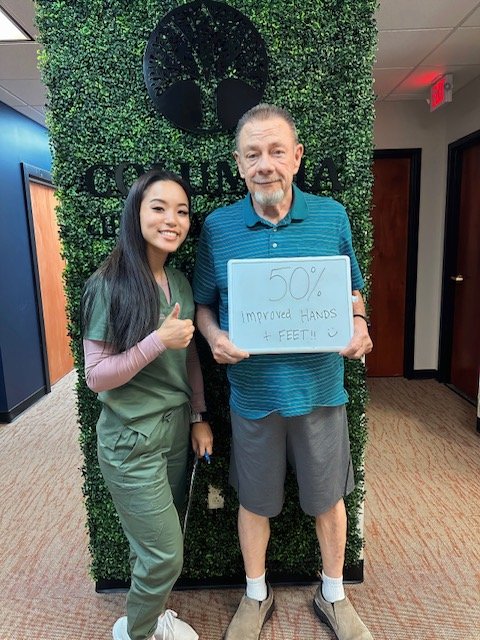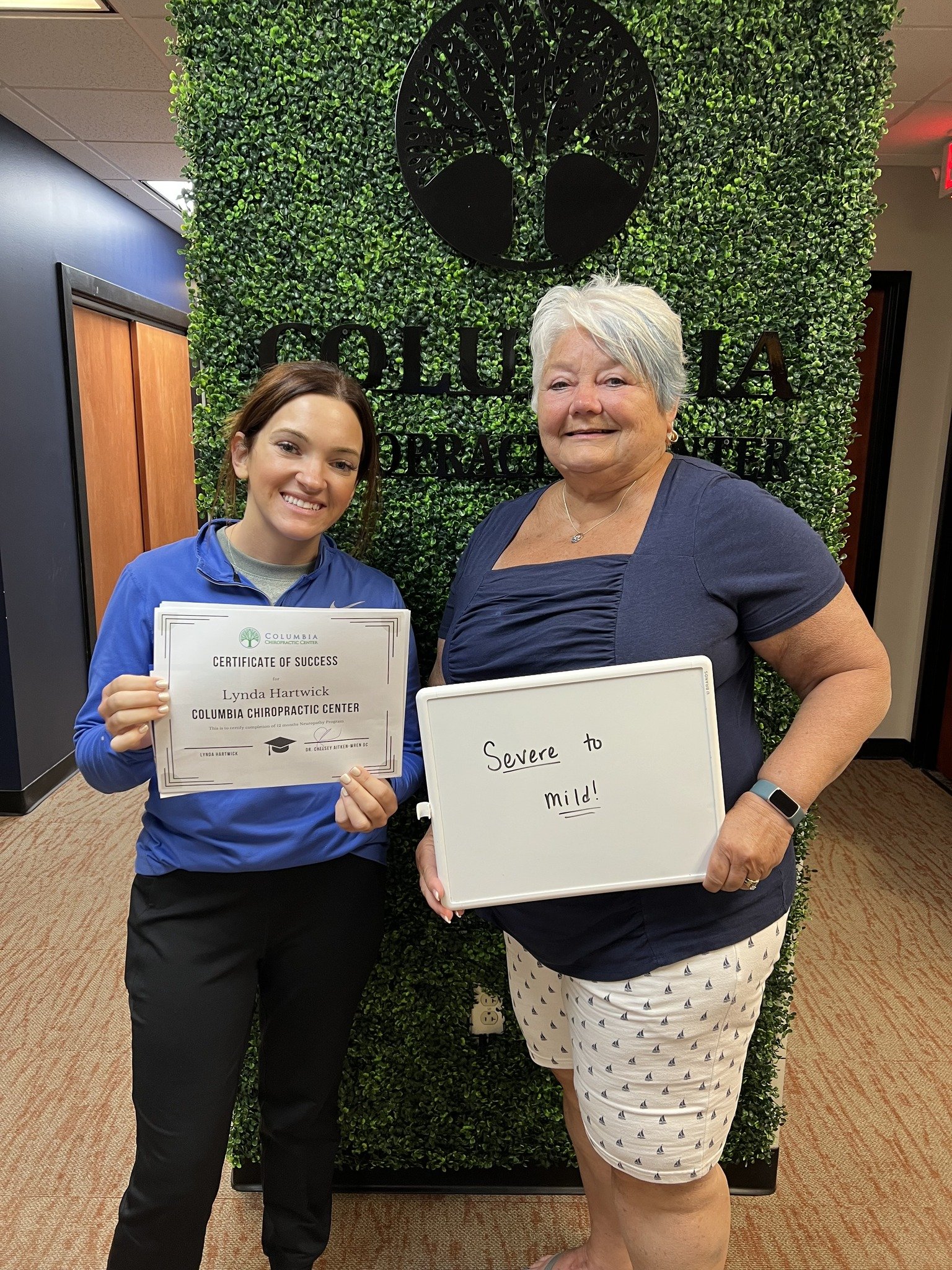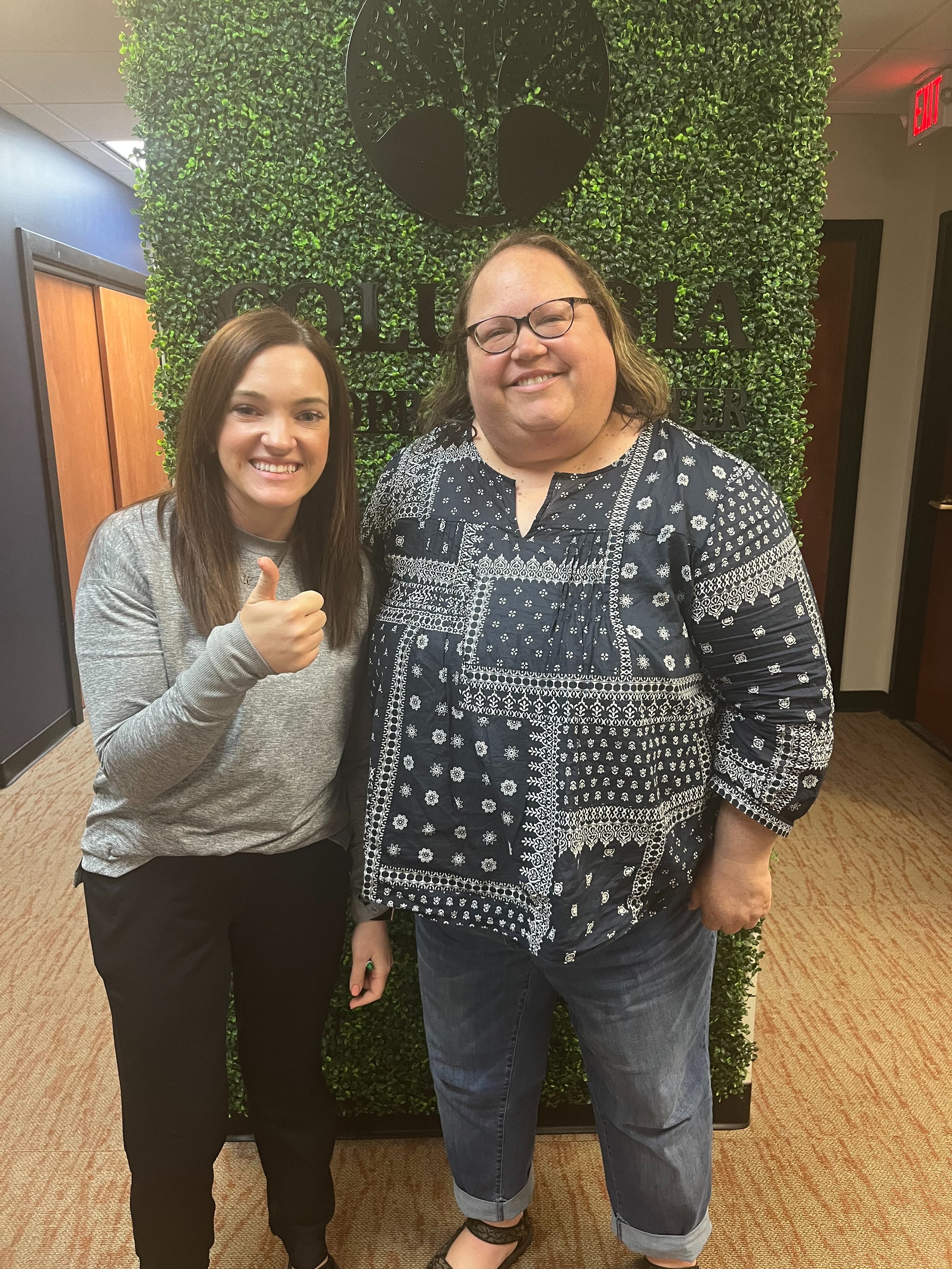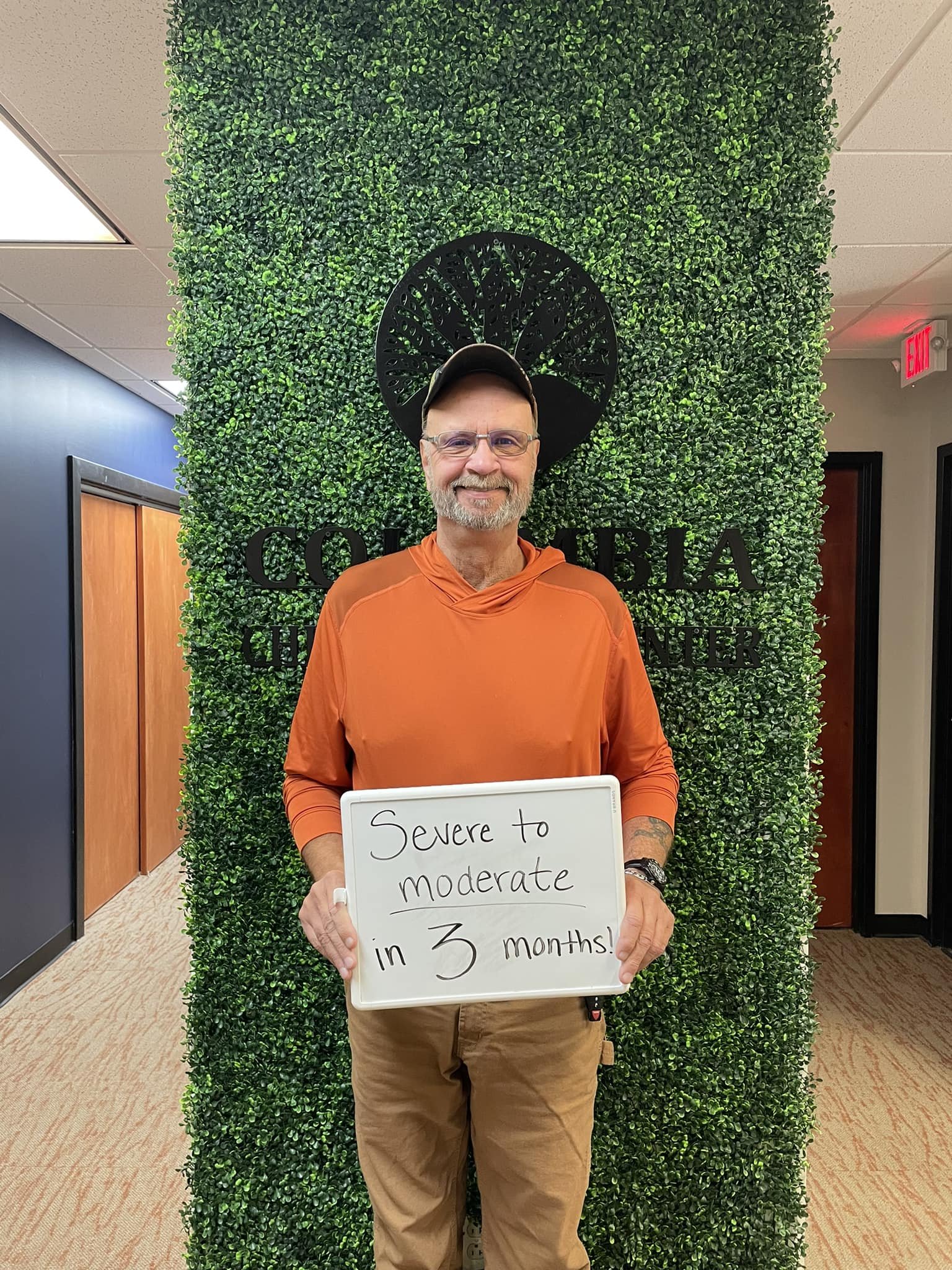Neuropathy
Neuropathy Candidacy Consultation $49!
WHAT IS NEUROPATHY?
Neuropathy is a general term meaning "nerve problem". There are two main types of neuropathy and a variety of causes. The first type of neuropathy we will discuss has been the most common type for years but that is starting to change.
The first type is Large Fiber Mono-Neuropathy (Large Fiber meaning the bigger nerve bundles closer to the spine and Mono-meaning "one"). Large Fiber Mono-Neuropathy usually begins at the spine level, either the lower neck or lower back, and typically radiates down one arm or one leg.
The symptoms can be numbness, tingling and/or pain and most of the time will start in the shoulder or buttock region and then progressively begin to travel further down the affected arm or leg until reaching the hand/fingers or foot/toes.
The cause of this type of neuropathy is often trauma to the body like slips, falls, car accidents or other injuries that we can't even remember and weren't dealt with properly at the time and then start to affect us years or decades later.
The underlying cause in most cases is a problem involving the whole complex of spinal structures (muscles, ligaments, vertebrae, spinal discs) and first produce an abnormal alignment of the spine which causes pressure on the nerves which then causes the symptoms, or abnormal alignment causes increased pressure on the spinal discs (shock absorbing pads between every two spinal bones) and abnormally wears them causing a "bulging disc" which can contact the spinal nerves and cause the symptoms.
A bulging disc, if left untreated can worsen and eventually lead to a ruptured disc in which a jelly like substance in the center of the disc (think jelly doughnut) can start to leak out and hit the nerve(s) and cause severe pain, numbness, tingling, weakness and eventually loss of muscle function (i.e. drop foot).
If this type of neuropathy is not treated early enough, it usually ends up as a surgical case.
PERIPHERAL NEUROPATHY
The second type of neuropathy is Small Fiber, Poly-Neuropathy. (Small Fiber meaning the smaller nerve bundles closer to the ends of the extremities and Poly - meaning "many" because there are many more nerves and nerve endings in these regions than there are closer to the spine).
This type is quickly becoming more and more prevalent and estimates are that it affects nearly 46.5 million Americans. This type of neuropathy is also know as Peripheral Neuropathy because it affects the nerves furthest away from the center of the body (like the lower arms, hands, fingers, lower legs, feet and toes).
Peripheral neuropathy is a progressive condition that typically affects the lower legs and feet and then can advance to the hands and fingers. Peripheral neuropathy is characterized by a trilogy of symptoms, usually numbness and tingling and eventually leads to debilitating balance problems. Pain is the variable with peripheral neuropathy. Some people never experience pain and for some people, pain is the first symptom to show up.
The pain of peripheral neuropathy varies from person to person. Some people have a burning type pain. For some it feels like electrical shocks. For others it's like their feet are being torn apart.
Peripheral Neuropathy is a disorder of the peripheral nerves those are the nerves that go down into your arms hands legs and feet.
The peripheral nerves are anything outside of the central nervous system, which is just the brain and spinal cord. So the peripheral nerves like the ones that go down to your hands and feet are the ones that are typically affected in neuropathy.
CAUSES OF NEUROPATHY
Estimates put the number of causes for Peripheral neuropathy at over 1000! Despite this number, there are really only three main categories of causes.
- PHYSIOLOGICAL/FUNCTIONAL CAUSES
Physiological or functional causes of neuropathy are basically health conditions that develop in the body. While there can be health conditions that develop with seemingly no cause, such as Type 1 Diabetes, these causes are typically "lifestyle diseases" that develop as a result of not giving the body what it needs to function properly, such as sufficient daily exercise or hydration, as well as overindulgence in things like food and/or alcohol. Most of these causes involve damage to the cardiovascular/circulatory system and reduce blood flow to the nerves of the lower legs and feet or lower arms and hands. Type 2 Diabetes is the most common lifestyle cause of peripheral neuropathy, however, other circulatory conditions such as heart disease, high blood pressure, congestive heart failure, and stroke can cause peripheral neuropathy as well.
- CHEMICAL CAUSES
Chemical causes of peripheral neuropathy include anything that gets into the body by chance or by choice. These include medications like over the counter anti-inflammatories as well as statin drugs commonly used for treating high cholesterol, chemotherapy, radiation treatment, Agent Orange, prolonged and heavy alcohol and/or tobacco use, and finally, sugar. Excessive sugar consumption over time can lead to Type 2 Diabetes which is one of the most common causes of Peripheral Neuropathy.
- PHYSICAL/TRAUMATIC CAUSES
Physical or traumatic causes of neuropathy typically cause the large fiber mono-neuropathies, like sciatica, although they can contribute to the peripheral type as well as being a sole cause of peripheral neuropathy. Before continuing, let's talk about age. Neuropathy is not solely an age related issue, because if it was then every person would develop it and would develop it at the same time, say, at 1:04 pm at the age of 59 1/2 years of age.
Neuropathy can affect people of all ages depending on the cause. We've treated patients as young as 19 years and our oldest was 94 when she developed neuropathy. If we break down what "age" really is, it is a number of accumulated days. So someone who is 10 years old, has lived 3650 days. These days include our normal daily activities like sitting, standing, bending, twisting, lifting, reaching, walking, running and sleeping just to name a few. These days add up and over time, if we don't take proper preventative maintenance steps, can create neuropathies.
Now, take these normal daily stresses and throw in some slips, falls, accidents and injuries along the way. It's estimated that the average 5-year old, has fallen down 5000 times! If this happened to us over the next 5 years, we would be bed ridden if not worse!
Typically it's all the things we did as kids or young adults, when we thought we were invincible, that catch up to us when we're older.
This accumulation of stresses over time leads to degenerative conditions like Arthritis, Degenerative Disc or Joint Disease, and Spinal Stenosis which then can increase pressure on or irritate nerves and blood vessels and create these neuropathy problems.
Why Our Program
Neuropathy is a progressive condition meaning it always get worse and never gets any better on it's own. Medications don't stop the progression or even slow it down. Medication can temporarily work but then as nerve damage and symptoms get worse, increased dosage of medication is required to get the same effect as before. Well, there's a legal limit for how much medication a doctor can prescribe per day. So what happens when you are taking the maximum per day and it no longer continues to help the symptoms? What happens when the nerve damage gets to the point of no return and the nerves can no longer regenerate and the neuropathy is permanent? The good news is our comprehensive approach to treating peripheral neuropathy addresses the underlying causes and gets the nerves regenerating and repairs the damage and as a result, the frequency and severity of the symptoms decreases significantly if not 100% eliminated.
Is Our Program Right For You?
If you have been suffering and doctors and specialists tell you there's nothing that can be done our program is for you.
If you are tired of taking medication that only helps a little, if any at all, our program helps people naturally with no drugs or injections.
If your balance is getting worse our program addresses and helps improve balance and stability. Call us today.
If you are interested in finding and correcting the underlying cause of your numbness, tingling, pain and/or balance problems, then we have what you have been searching for.
If peripheral neuropathy has cost you time, sleep, money or freedom then schedule a FREE CONSULTATION today to see if we can get you feeling better, sleeping better and walking better so you can do the things you like to do or need to do and get your life back!
Congratulations!
I want to thank CO Chiropractic Center for coming into my life. I had almost given up hope of walking again; when one night while on Facebook I saw your add and I immediately called and left a message to make an appointment to see if I qualified for your program. I was called the very next morning and was given an appointment for the next day. In that meeting I met my sweet Ava whom I have bugged so much. With her help and guidance I have been able to stick to the program. I will continue with my weight loss and all I need to do to strengthen my feet and hands. I look forward to the day I can walk into the Center without my walker! Thank you Dr Chelsey and Ava! - Sandy R.
Sleeping without Burning Pain
Feeling the Gas Pedal Again!
Less Numbness!





